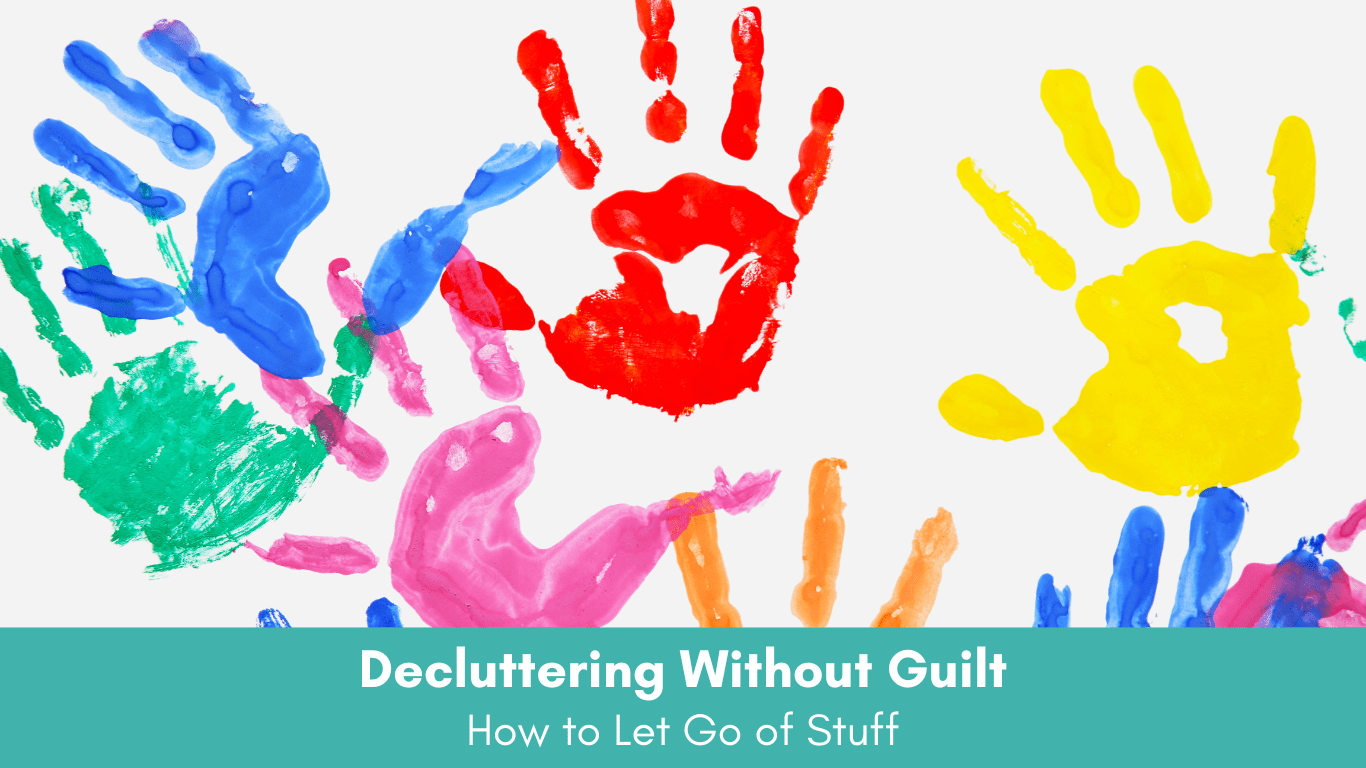We’ve all been there—staring at a closet, basement, or storage bin full of stuff we know we don’t need, but just can’t seem to part with. Whether it’s Grandma’s china, a too-expensive-to-toss pair of shoes, or that box of preschool artwork from a now-grown kiddo, the emotional attachment is real.
But here’s the truth: your home should work for you, not against you. If your space feels too full, stressful, or hard to navigate, unneeded items aren’t helping you. Let’s walk through some common mental blocks and help you declutter without the guilt!
Start With Your “Why”
First, get clear on what you want from your space. Is your goal to create a peaceful guest room? A tidy, functioning garage or a thoughtfully organized closet? Write your goals down in big, bold letters (yes, for real!) and post them somewhere visible. When the “what ifs” and “but maybes” creep in, you’ll have a powerful reminder of why you’re doing this.
Sentimental Guilt
This is by far the toughest category for most people. That sweater your mom gave you. The china cabinet from Grandma. The handmade gifts from your kids.
But here’s a gentle truth: your memories live in your heart—not in the object. You can love someone deeply and still let go of the things they gave you.
Try these tricks:
- Take a photo of the item. A slideshow of keepsakes or children’s artwork still evokes the warm fuzzy memories without taking up space. Read more about organizing art and school papers for kids here!
- Keep just 1 or 2 meaningful pieces instead of the entire collection (for example, a teacup and saucer that could serve as decor instead of an entire box of heavy china that will never get used).
- Make a shadow box with a few pictures and small related keepsakes. This also makes a great gift!
- For truly irreplaceable items, gather them together, then look at the physical space they take up. Reassess: Is the value worth the space?
And remember—your loved ones wouldn’t want their belongings to burden or overwhelm you. You’re not being disrespectful by letting go. In fact, you’re creating a home that reflects the needs and joy of your current life.
Too Expensive to Toss
We’ve all held on to things because they were expensive—those fancy heels that pinch your feet or the juicer you swore you’d use. But here’s the thing: the money is already gone.
Keeping it doesn’t bring the money back—it just makes you pay for it again in space and stress.
Instead, ask:
- Could someone else love and use this right now?
- Would it make a great donation or gift?
Still can’t bear the thought of “wasting” the money you spent? Try reselling instead through local marketplace websites, consignment stores, or resale apps. Recovering a fraction of the funds may help you let it go.
“Someday” Stuff
The sewing machine, the sports equipment, the jeans that might fit again—these items are full of future intentions. But how realistic are they?
If you haven’t touched it in a year, ask:
- Would I even remember I had this item a few months from now?
- Can I borrow or rent this if I ever need it?
- Is this item moving me closer to my goal—or holding me back from it?
Be honest with yourself. Make space for today’s needs—not “maybe someday” scenarios.
Family Heirlooms
This is where clutter often gets passed down like a family tradition. We often feel obligated to pass down the furniture, china, or hand knitted blankets through the generations but it’s rare to actually ask if the intended recipient actually wants these things.
- Just Ask—If your kids are old enough to make a decision, allow them to make their own choice about the item.
- Respect the Decision—if they say no, respect that.
Don’t feel guilty if you don’t have a connection to a family heirloom. Many people would love to give your antique item a home and treasure its craftsmanship and history. This is your permission slip to let it go.
If you’d like to document the item for posterity, take some photos and make any notes you may have about its origins to keep in a family photo album or memorabilia box.
Still Not Sure? Use the 6-Month Rule
If you just can’t seem to decide whether you want to keep something or not, pack the item away and set a reminder on your calendar for 6 months. If you haven’t missed or even thought about it since, it’s safe to say you’re ready to let it go.
Don’t Let Your Stuff Weigh You Down
You’re not being wasteful. You’re not being ungrateful. You’re being intentional about what deserves space in your life—and what doesn’t.
Letting go isn’t about loss. It’s about making room—for clarity, peace, and the life you want to live right now. So go ahead, declutter without the guilt and set yourself free!

